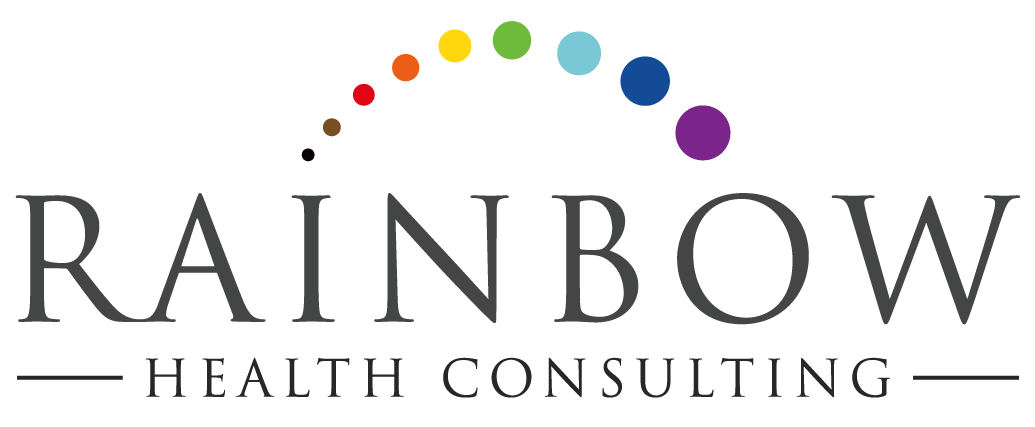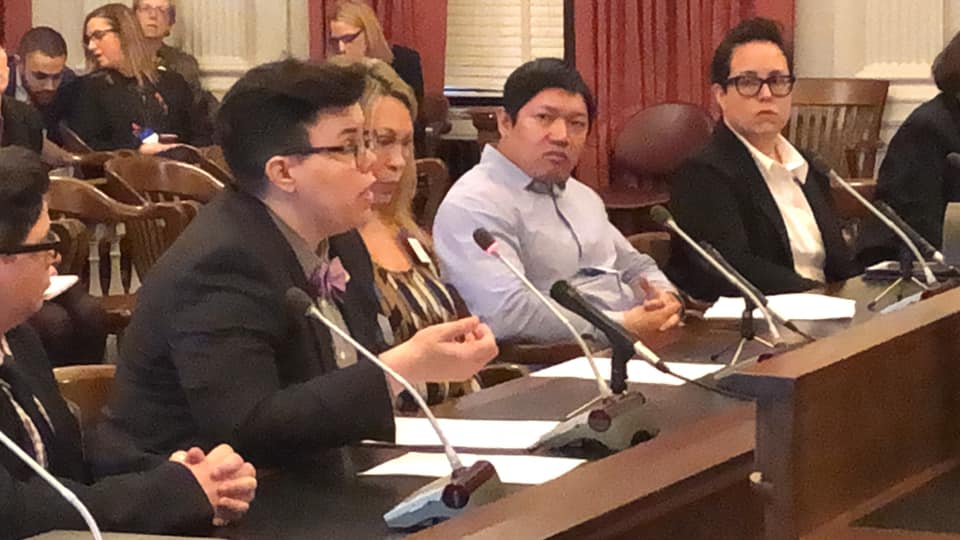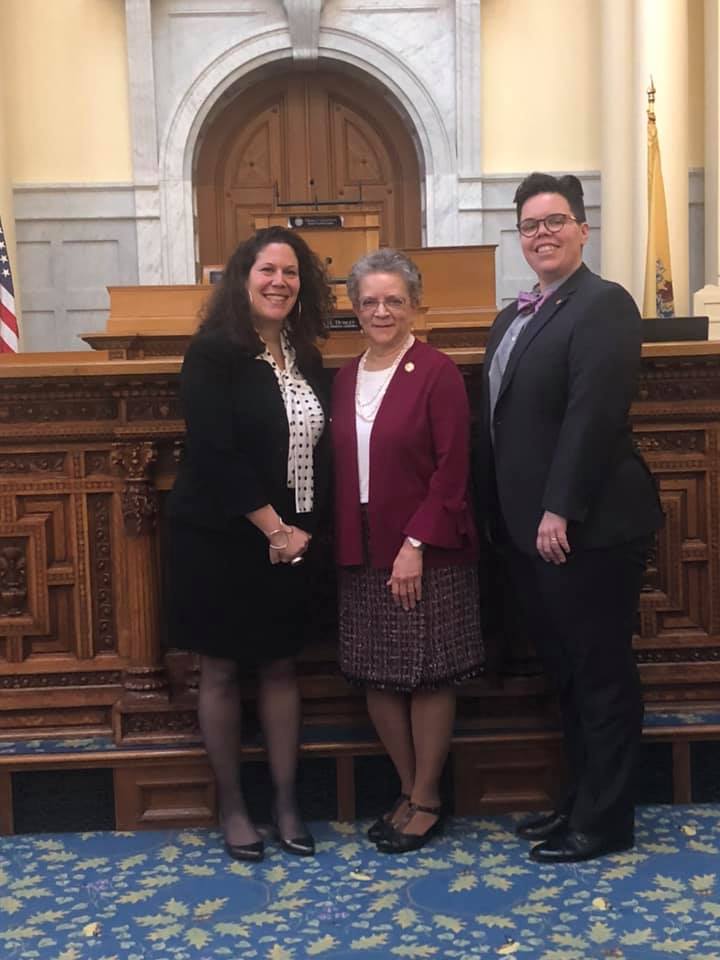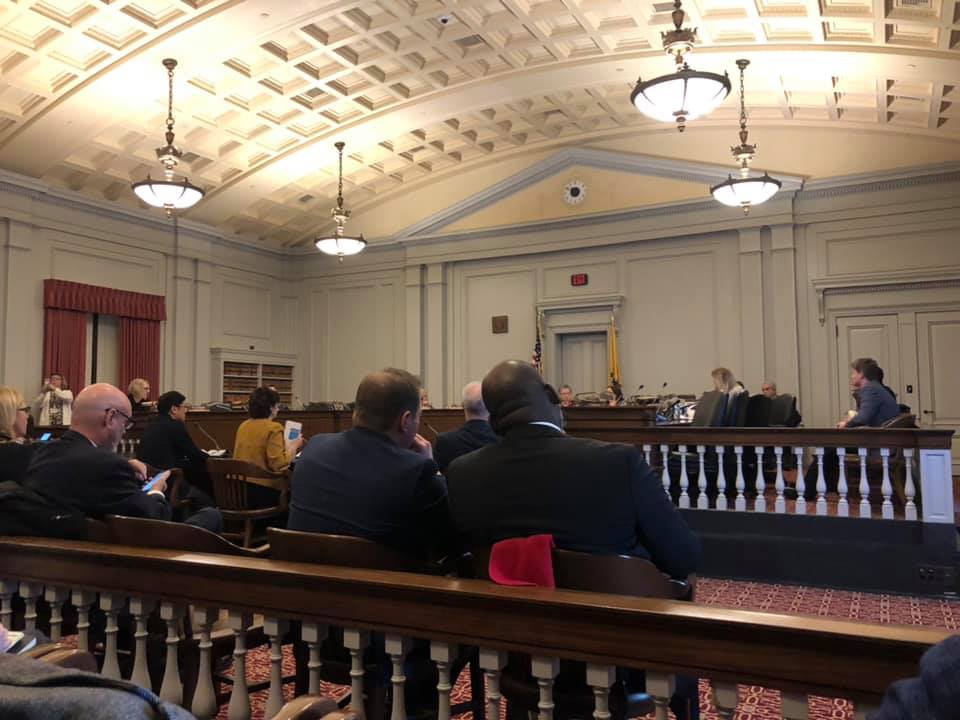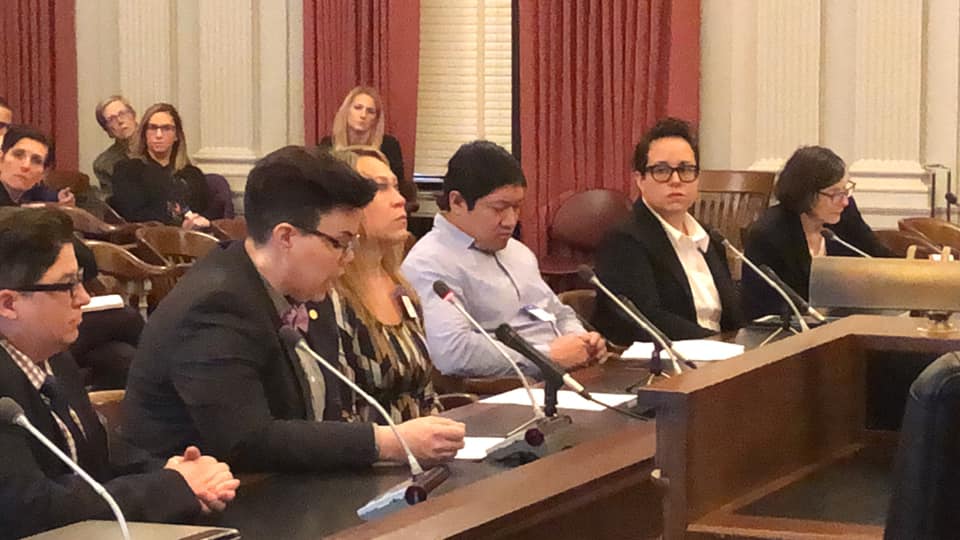Rainbow Health Consulting Testifies About Culture and Climate for LGBTQ+ Youth in the Public Schools
Rainbow Health Consulting was fortunate to have been invited by Assemblywoman Mila Jasey (NJ’s Legislative District 27) to give expert testimony in Trenton this week, to the Joint Assembly/Senate Committee on the Public Schools (JCPS). Below is the written testimony that was presented to the State of New Jersey.
Testimony to the New Jersey Joint Committee on the Public Schools
Jan Oosting Kaminsky, PhD, RN –
Director of Education, Rainbow Health Consulting; Assistant Professor, CUNY
February 5, 2019
Good day and thank you for the opportunity to testify. My name is Jan Kaminsky. I am an Assistant Professor of Nursing at the City University of New York and the Director of Education at Rainbow Health Consulting, which educates health care professionals on issues impacting the LGBTQ+ community. A major focus of our work is the health and welfare of LGBTQ+ youth, including their interactions with the public schools in the State of New Jersey.
Rainbow Health Consulting welcomes the focus on climate and culture in our schools at this meeting of the Joint Committee on the Public Schools. I would like to take this opportunity to further call the Committee’s attention to some of the challenges facing LGBTQ+ students in the public schools and offer suggestions for the Committee’s consideration.
LGBTQ+ youth comprise a significant portion of our student population and remain an especially vulnerable group in terms of their health, safety, and welfare both inside and outside of their school environment. According to the CDC, approximately 2% of high school students are transgender, and approximately 8% identify as lesbian, gay, or bisexual. There are additional higher numbers of students who are unsure of their identity, do not identify precisely with one of the above terms, or are not ready to disclose their identity. In New Jersey, this conservatively represents well over one hundred thousand students who are impacted by significant concerns of climate and culture each school day.
Research has demonstrated that bullying of sexual minority youth has been found to begin as early as fifth grade. We know that bullying, harassment, and intimidation set vulnerable students up for higher risk of substance use, mental health concerns, and self-harm including suicide risk. For example, the Centers for Disease Control recently reported that for transgender high school students, 34.6% of students had attempted suicide in the past 12 months. LGBTQ+ students also expressed high rates of sexual risk-taking behavior; rape and other victimization; absenteeism from school to avoid violence or threats of violence either en route to/from school or during the school day; feelings of depression or hopelessness; and increased use of hard drugs.
We are gravely concerned for the health and well-being of these vulnerable New Jersey students, who face real concerns throughout their school career - from incorrect gender marker and name on electronic enrollment management programs in kindergarten (parent report of district failing to update child’s legal name in PowerSchool/Genesis, thereby resulting in school personnel calling student by incorrect gender and name causing great pain and humiliation to student), to lack of resources and support at all school levels. Many New Jersey students benefit from resources in their schools such as student activities and events relating to the LGBTQ+ community, but many students do not have any exposure/access to these important resources.
It is critical that all New Jersey school districts comply with the new legislation mandating student education on LGBTQ+ history and culture. This will help to ensure that students understand the complex background of LGBTQ+ history and contributions to the state, nation, and world. Based on the recent CDC findings noted above, an important recommendation for decreasing the risk behaviors of LGBTQ+ students is for schools to offer “access to culturally competent physical and mental health care” in the school setting.
From the faculty and staff perspective, Rainbow Health Consulting has observed a significant lack of consistent professional development for teachers, administrators, support staff, and school nurses around LGBTQ+ student issues in many school districts. Rigorous, professionally-run, culturally competent training on LGBTQ+ issues must be a statewide requirement for those who work with youth in schools. This training must also not fail to take into consideration the intersectionality of identities such as race, ethnicity, national origin, ability, religion, and other parts of each of our complex selves. This should include vocabulary and definitions; the importance of using a student’s correct name and pronouns (both in person and in electronic and paper school records and enrollment management systems); using LGBTQ+-inclusive language in classes, clubs, and the school nurse’s office; showing representation of LGBTQ+ history and stories around the school; the creation of supportive and inclusive district policies around such concerns as inclusive restrooms, locker rooms, athletic policies, and dress codes; including lessons that center the experiences of LGBTQ+ students or exemplars in curricula; the promotion of student clubs and activities formed around LGBTQ+ identities; and maintaining connections to outside resources to whom students and families can be referred, such as support groups, health care professionals, or social organizations.
For health providers in schools, such as school nurses, health teachers, and physical education teachers who also plan content around health, that curriculum should be inclusive of LGBTQ+ themes around mental and physical health. Health classes should not be divided by sex, for example, but should teach all students about many different types of bodies and sexualities, so that they may be informed. Programs must be developed and utilized that help all students to understand sexual orientation and gender identity in an age-appropriate and accurate way. These programs should use examples of positive LGBTQ+ relationships and should include the need for safer sex practices no matter the partner or identity. Additionally, they should actively work to dispel harmful stereotypes and myths about sexual orientation and gender identity.
In addition to providing further support for LGBTQ+ students, it is of course essential to provide non-LGBTQ+ students with resources to increase their knowledge and understanding of LGBTQ+ issues. Recent research found that even non-LGBTQ+ students benefited from having an LGBTQ+ student-run club or activity in their school. They most certainly would also benefit from inclusive health education and a more generally inclusive environment.
We are confident that districts within the state strive to provide support and resources to all students to ensure a climate and culture of safety, health, and well-being. Rainbow Health Consulting is ready to work with the Committee in strengthening and enforcing the rights of LGBTQ+ students as they progress through our school districts. Thank you for the opportunity to share these comments and suggestions with the Joint Committee on the Public Schools today. I would be happy to answer questions from the Committee or submit additional information on this important topic.
